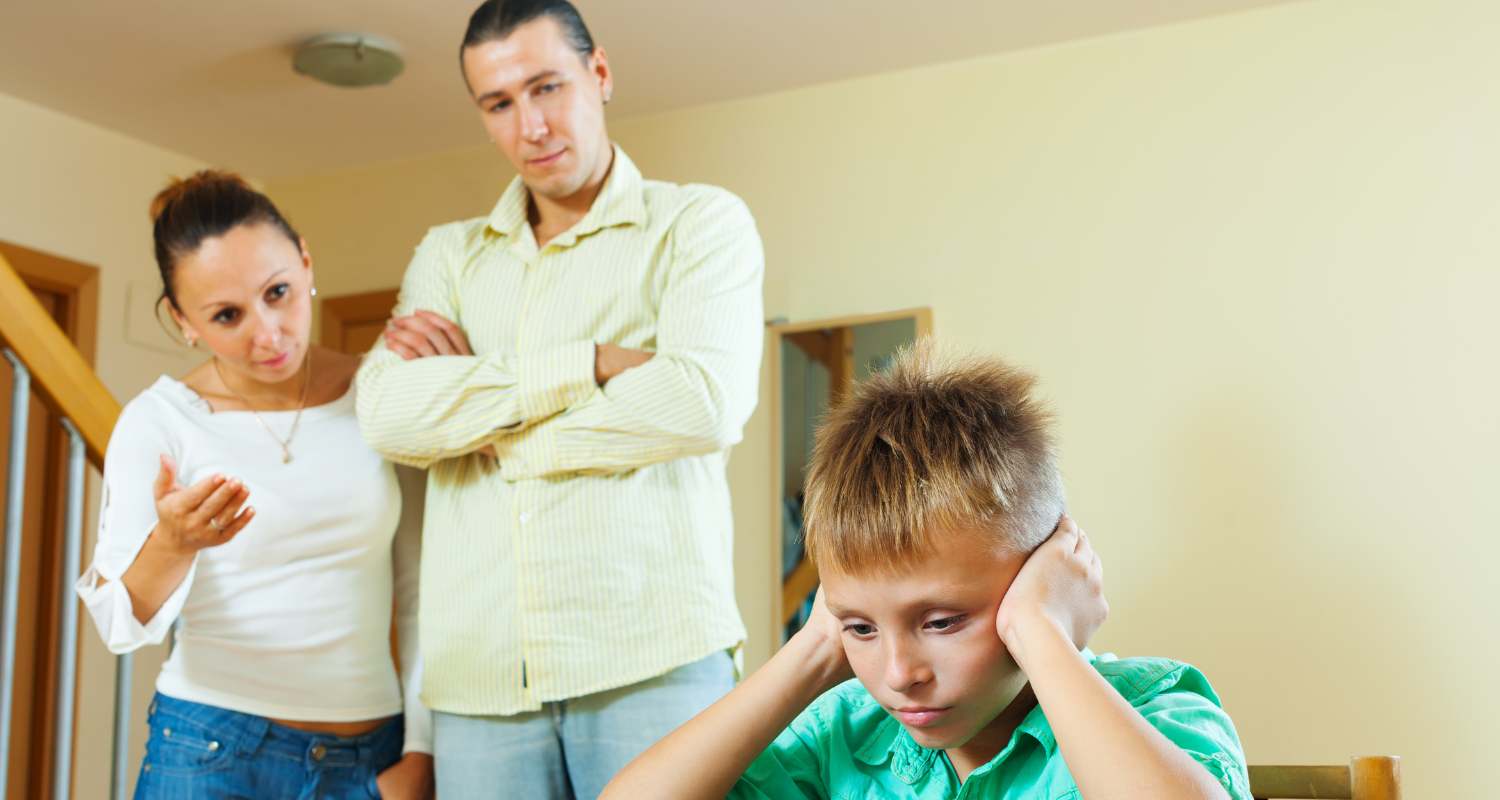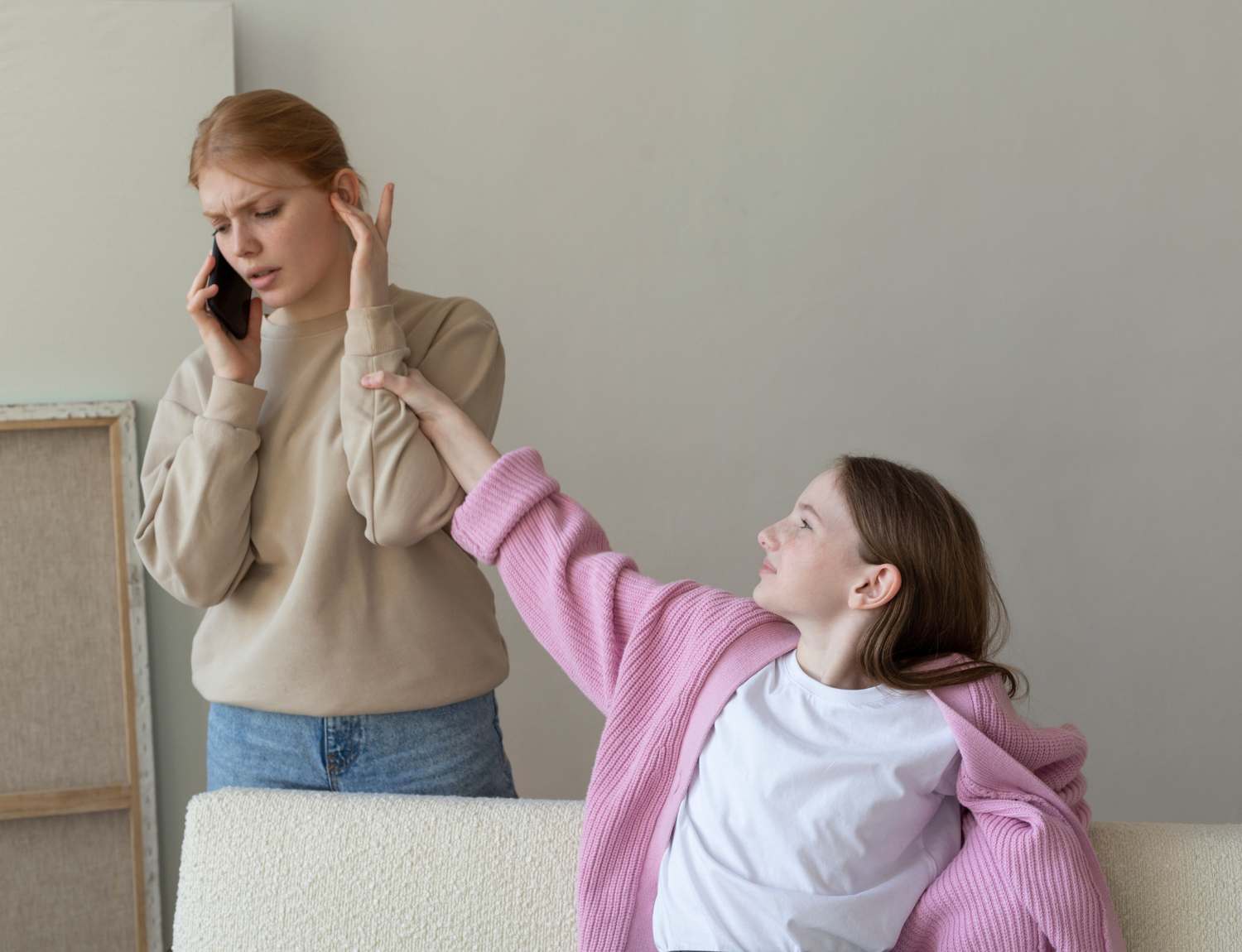Behavioral Issues in Children and Adolescents
Raising a child or adolescent who struggles with behavioral issues can be challenging and overwhelming. At Connect Counseling Center, we offer Behavioral Therapy for children and teens in Mount Juliet, Clarksville, and Cookeville to help families address behavioral concerns, improve communication, and develop healthy coping strategies. Our therapists are experienced in working with children and adolescents to reduce disruptive behaviors and promote emotional well-being.

What Are Behavioral Issues?
Behavioral issues in children and adolescents refer to patterns of disruptive, defiant, or problematic behavior that interfere with daily functioning, relationships, and academic performance. While all children experience occasional misbehavior, persistent behavioral challenges may indicate underlying emotional or psychological struggles. Behavioral issues can manifest in various forms, depending on the age and developmental stage of the child.
How Behavioral Therapy Works
Behavioral therapy focuses on helping children and adolescents develop healthier coping mechanisms, improve emotional regulation, and learn more positive ways of interacting with others. At Connect Counseling Center, our therapists tailor treatment to meet the specific needs of each child and family, creating a safe and supportive environment for change.
1. Cognitive Behavioral Therapy (CBT)
CBT is commonly used to treat behavioral issues by helping children recognize how their thoughts, emotions, and behaviors are connected. In therapy, children learn to identify unhelpful thought patterns that lead to disruptive behaviors and practice replacing them with healthier ways of thinking. CBT also teaches problem-solving skills, emotional regulation techniques, and strategies for coping with frustration.
2. Parent-Child Interaction Therapy (PCIT)
PCIT is a therapy designed to improve the parent-child relationship by focusing on positive reinforcement and clear communication. During PCIT sessions, parents and children engage in structured interactions while a therapist provides guidance on how to manage behaviors effectively. This therapy helps parents set appropriate boundaries, offer praise for positive behaviors, and address misbehavior in a constructive way.
3. Behavioral Therapy for ADHD
For children and teens with ADHD, behavioral therapy focuses on improving organization, attention, and impulse control. Therapists work with children to develop routines, manage time, and practice staying focused on tasks. For younger children, therapy may also include techniques for managing hyperactivity and following instructions more effectively.
4. Family Therapy
When a child’s behavior is impacting the entire family, family therapy can help improve communication, resolve conflicts, and create a more harmonious home environment. Family therapy allows parents and siblings to better understand the child’s needs, develop consistent parenting strategies, and strengthen family relationships.
5. Play Therapy for Younger Children
For younger children who may struggle to express their emotions verbally, play therapy provides a safe and creative outlet for them to explore their feelings. Through play, therapists can help children process difficult emotions, develop problem-solving skills, and learn healthier ways to express themselves.
Common types of behavioral issues include:
Oppositional Defiant Disorder (ODD): Persistent patterns of defiance, anger, and refusal to follow rules or respect authority figures.
Attention-Deficit/Hyperactivity Disorder (ADHD): Difficulty focusing, impulsivity, restlessness, and struggles with organization or following through on tasks.
Conduct Disorder: More severe behavioral problems, including aggression, lying, stealing, and a disregard for others’ rights or social rules.
Anger and Aggression: Frequent outbursts of anger or physical aggression toward others.
Emotional Dysregulation: Difficulty managing strong emotions, leading to emotional outbursts or meltdowns.
Social Difficulties: Struggles with making and maintaining friendships, bullying behaviors, or social withdrawal.
These behaviors can disrupt family dynamics, cause academic difficulties, and affect a child’s self-esteem.
Signs That Your Child May Need Therapy for Behavioral Issues
Recognizing when your child’s behavior has escalated to the point of needing professional intervention is important. Some signs that your child may benefit from therapy include:
Frequent Tantrums or Outbursts: Regular emotional meltdowns that are difficult to manage.
Defiance or Refusal to Follow Rules: Repeated opposition to authority figures, whether at home or school.
Aggression or Violent Behavior: Physical aggression, such as hitting or biting, or verbal aggression toward others.
Poor Academic Performance: Difficulty focusing on schoolwork, following instructions, or maintaining attention in class.
Social Isolation or Bullying: Problems interacting with peers, whether due to bullying or withdrawing from social situations.
If your child’s behavior is affecting their ability to succeed in school, make friends, or engage positively with family members, therapy can provide tools to address these issues.
The Benefits of Behavioral Therapy
Therapy for behavioral issues offers numerous benefits for children, adolescents, and their families:
1. Improved Behavior at Home and School: Therapy helps children reduce disruptive behaviors and follow rules, improving their performance at school and behavior at home.
2. Better Emotional Regulation: Children and teens learn how to manage their emotions more effectively, reducing outbursts and meltdowns.
3. Stronger Parent-Child Relationships: Parents gain tools for setting boundaries, communicating more effectively, and reinforcing positive behaviors.
4. Increased Confidence and Self-Esteem: As children develop healthier behaviors and coping strategies, they often experience a boost in self-esteem and confidence.
5. Enhanced Social Skills: Therapy can help children improve their peer relationships, develop empathy, and practice conflict resolution.

Behavioral Therapy at Connect Counseling Center
At Connect Counseling Center, we understand that behavioral issues can be frustrating for both parents and children. Our experienced therapists are here to provide guidance and support, helping your child develop the tools they need to succeed. We take a collaborative approach to treatment, working closely with parents, schools, and other caregivers to ensure comprehensive care.
We offer in-person therapy at our locations in Mount Juliet, Clarksville, and Cookeville, as well as teletherapy options for those seeking flexibility.
Take the First Step Toward Positive Change
If your child is struggling with behavioral issues, Connect Counseling Center is here to help. Contact us today to schedule an appointment and begin the journey toward healthier behavior and stronger family dynamics.
